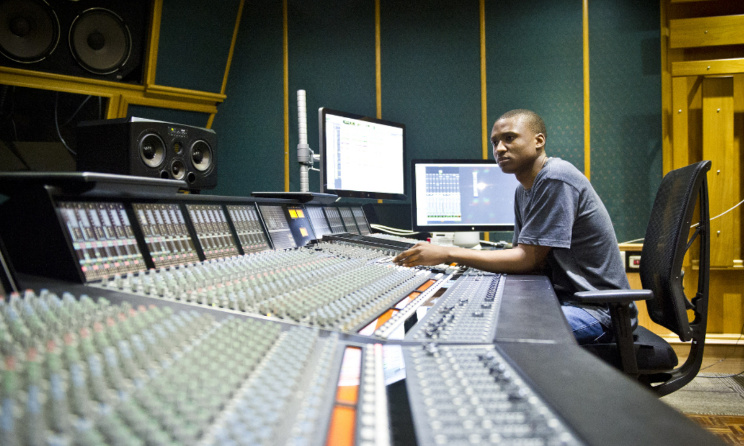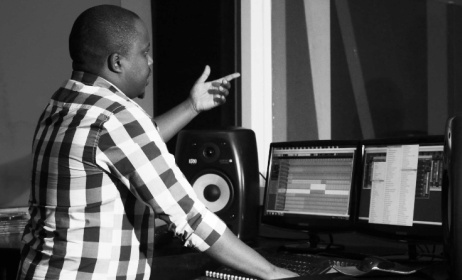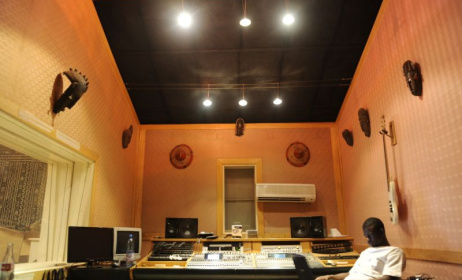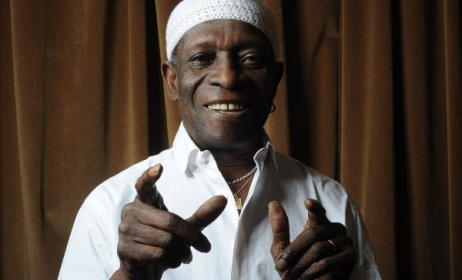August 2017 theme: The recording industry in Africa
The recording of sound is arguably the most important aspect of music-making. It is the process through which soundwaves are immortalised for future generations to enjoy and learn from. The first known recording of a sound was made in the late 1850s with the help of a phonautograph, the earliest sound recording device invented by the Frenchman Édouard-Léon Scott de Martinville.
 A sound engineer at Downtown Studios in Johannesburg, South Africa.
A sound engineer at Downtown Studios in Johannesburg, South Africa.
Music as people knew it for thousands of years prior to the phonautograph's invention would never be the same, and in the next 150 years the recording process would shape the music industry from one based solely on live performances to one dependant on the sale of recordings as its biggest revenue stream. The thought that about a hundred million songs have been recorded in the past century and a half is frightening. Just imagine how many compositions are still to come in the next 200, 500 or 2000 years, and consider the importance that audio archives will bear on future generations who might want to know about their primitive forbearers in the year 2017.
In its short existence, the art of recording sound has gone through monumental changes. The transition from analogue to digital technology has made recording music relatively cheap and done away with the need for big studios, which together with mainstream labels would often sideline real talent in favour of commercial potential. Big studios and labels are still around today, but musicians now have the choice to opt for the independent route where they need not go through a selection process headed by label executives.
The decentralisation of the recording process is a godsend for African musicians, especially for those who live in some of the continent’s poorest countries. Many countries in Africa, particularly those defined by war, don’t even have formal studios, and in some cases authoritative governments have forbidden the making or performance of music. Some have even gone as far as to destroy all traces of musical heritage through despicable acts akin to book burnings. But this kind of despotic destruction of culture and expression is no longer effective, precisely because independent home studios have become the bastions of free musical creativity.
Music In Africa has commissioned and published original Overview Texts that cover the historical development of the recording industries of various African countries, with many more still to come. We will also add news and features that are complementary to our theme as the month progresses. Make sure you check in every day for useful information pertaining to the Recording Industry in Africa.
Overview Texts
- The recording and publishing industry in Botswana
- The recording industry in Chad
- The recording industry in Zambia
- The recording industry in Swaziland
- The recording industry in Mauritius
- The recording industry in Eritrea
- The recording industry in Ethiopia
- The recording industry in Togo
- The recording industry in Malawi
- The history of Zimbabwe's recording industry
- The Gambian recording industry
- The recording and video industries in Uganda
- The recording industry in Rwanda
- The recording industry in Tanzania
- The recording industry in Ghana
- Recording, performing and royalties in Senegal
- The South African recording and publishing industries
News & Features
Also be sure to check out the Music In Africa directory for recording services in Africa

































Comments
Log in or register to post comments